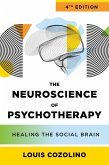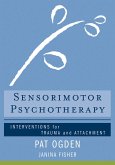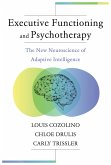A discussion of the self, both in and out of therapy.
For each of us, our thoughts, beliefs, desires, expectations, and fantasies constitute our own sense of a unique identity. Here, Jungian and relational psychoanalyst Jean Knox argues that this experience of self-agency is always at the heart of psychological growth and development, and it follows a developmental trajectory that she examines in detail, from the realm of bodily action and reaction in the first few months of life, through the emergence of different levels of agency, to the mature expression of agency in language and metaphor.
Knox makes the case that the achievement of a secure sense of self-agency lies at the heart of any successful psychotherapy, and argues for an updated psychoanalytic therapy rooted in a developmental and intersubjective approach. Drawing on a range of therapeutic disciplinesincluding interpersonal neurobiology, attachment theory, and developmental researchshe proposes an integrated and flexible clinical approach that is based on the actual interpersonal agency of analyst and patient, rather than any one specific theory about the human unconscious being imposed on the patient by the analyst's interpretations. Detailed clinical examples explore this approach.
Part of the Norton Series on Interpersonal Neurobiology, Self-Agency in Psychotherapy deftly balances theory and practice, offering practical applications for groundbreaking research on self-agency.
For each of us, our thoughts, beliefs, desires, expectations, and fantasies constitute our own sense of a unique identity. Here, Jungian and relational psychoanalyst Jean Knox argues that this experience of self-agency is always at the heart of psychological growth and development, and it follows a developmental trajectory that she examines in detail, from the realm of bodily action and reaction in the first few months of life, through the emergence of different levels of agency, to the mature expression of agency in language and metaphor.
Knox makes the case that the achievement of a secure sense of self-agency lies at the heart of any successful psychotherapy, and argues for an updated psychoanalytic therapy rooted in a developmental and intersubjective approach. Drawing on a range of therapeutic disciplinesincluding interpersonal neurobiology, attachment theory, and developmental researchshe proposes an integrated and flexible clinical approach that is based on the actual interpersonal agency of analyst and patient, rather than any one specific theory about the human unconscious being imposed on the patient by the analyst's interpretations. Detailed clinical examples explore this approach.
Part of the Norton Series on Interpersonal Neurobiology, Self-Agency in Psychotherapy deftly balances theory and practice, offering practical applications for groundbreaking research on self-agency.
Dieser Download kann aus rechtlichen Gründen nur mit Rechnungsadresse in A, D ausgeliefert werden.









